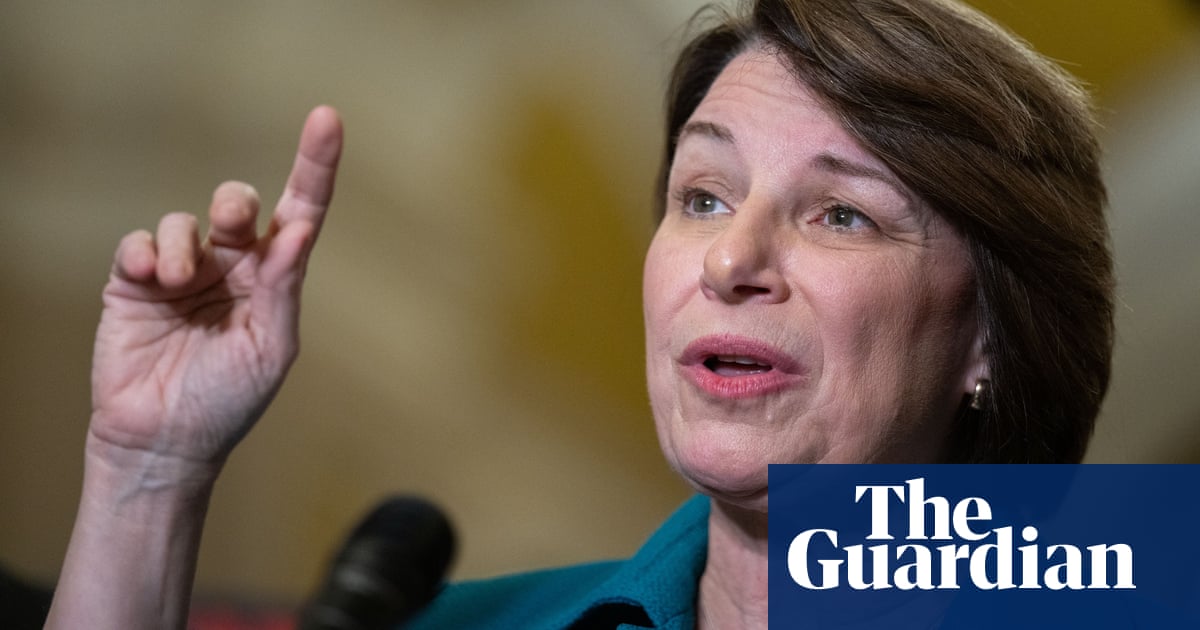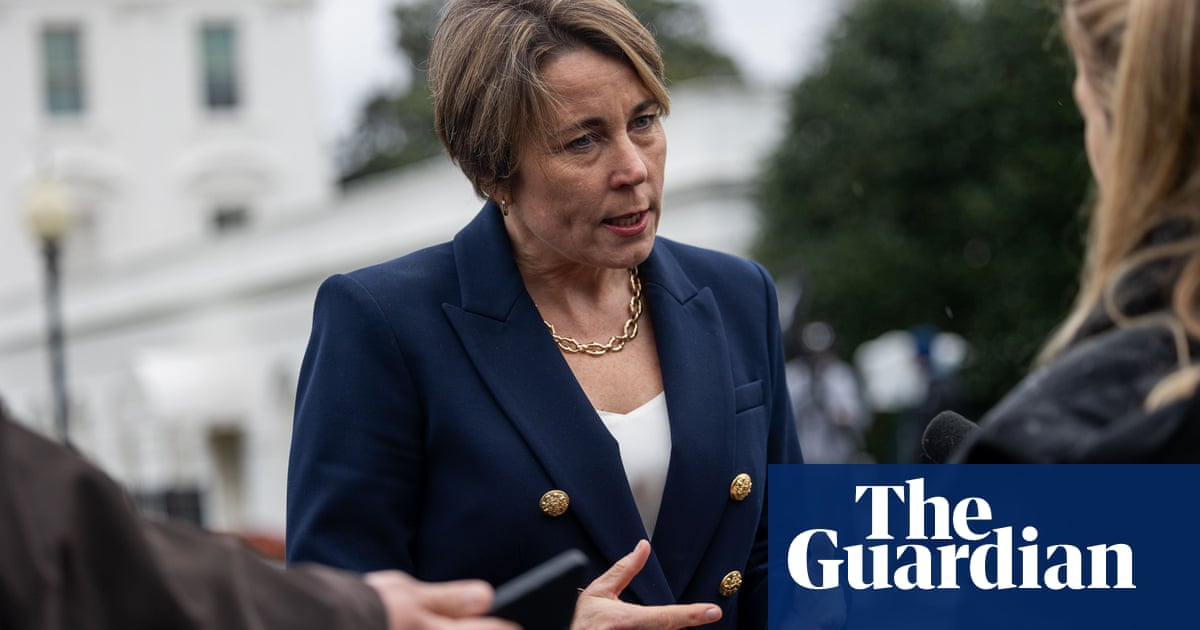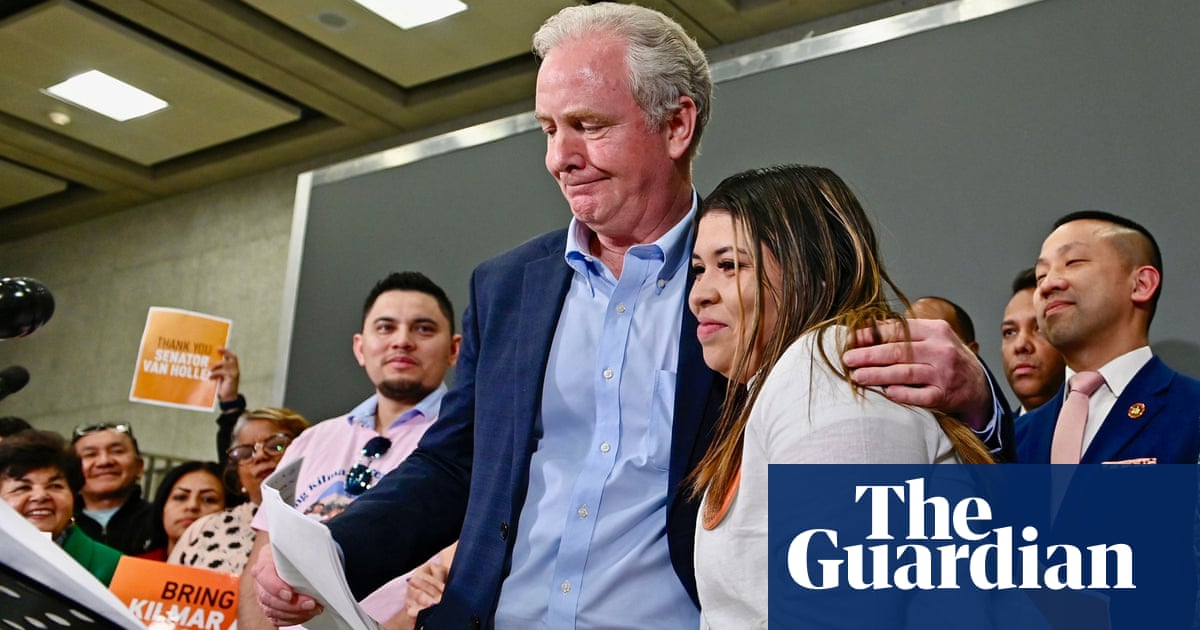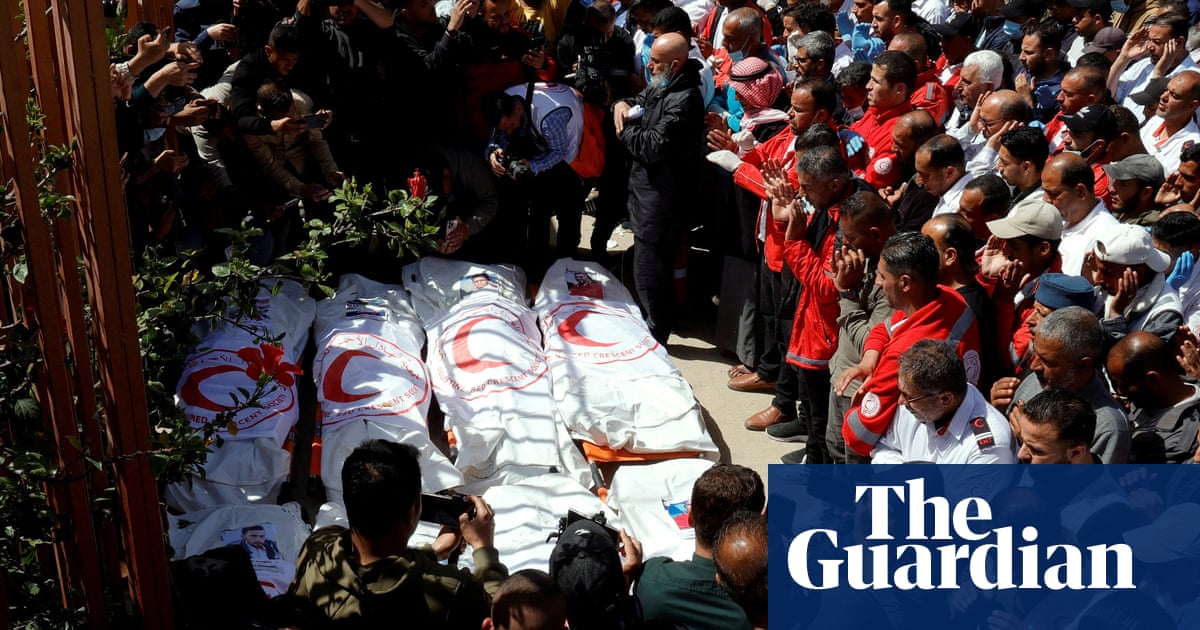At last! The yearned-for Israel-Hamas ceasefire-for-hostages deal is finally happening. It is welcome. Like thin ice covering deep waters, it is scarily fragile, prone to crack under the slightest pressure. And it is desperately, lethally overdue. Tens of thousands of Palestinians, and many Israelis, have died since last May, when US president Joe Biden first set out the parameters of this agreement. Civilians are still being killed in Israeli airstrikes that have actually intensified since the two sides grudgingly initialled the deal in Qatar.
Palestinians in Gaza and elsewhere are naturally relieved these merciless Israeli bombardments will soon stop. But celebrations are tempered by fears about the future, and by deep grief and anger over the still terrifying present and immediate past. According to Gaza health ministry figures, more than 46,000 people have died there since the 7 October 2023 Hamas terrorist attacks killed over 1,200 people. The true Palestinian death toll may be even higher.
Most of Gaza’s 2.3 million population is displaced. Most of their homes and neighbourhoods are in ruins. Most are short of food and water. Hunger, bordering on famine, is a daily menace. Hospitals and the healthcare system have been smashed. Tent cities have sprung up where real cities once stood. Gangs roam and steal. Children are perhaps the biggest victims. Those who survive are traumatised. The world’s abject failure to halt this slaughter of innocents will not be forgiven or forgotten.
Exactly why the deal took so long to reach is, like so much else, a matter of dispute. Benjamin Netanyahu, Israel’s prime minister, is accused by political foes, and the hostages’ families, of blocking a follow-up to the limited ceasefire-hostage deal in November 2023 in order to stay in power. Others blame Hamas, its recalcitrant leadership killed or dispersed, for the delay – and for consequent hostage deaths in captivity.
Israel’s far-right national security minister, Itamar Ben-Gvir, bragged this week that he had previously blocked the deal, which he believes is treasonous. “We succeeded in the past year through our political power in preventing this deal from going through,” Ben-Gvir boasted. He and fellow hardliner, finance minister Bezalel Smotrich, have much to answer for. Despite them, Netanyahu is said to have sufficient support to push the agreement through.
Various actors are queuing up to claim credit, with Donald Trump, the US president-elect, to the fore. His envoy, Steve Witkoff, reportedly applied heavy pressure on Israel to compromise on key aspects such as troop withdrawals along the Gaza-Egypt border. Trump warned Hamas “all hell will break out” if there were no hostage releases before he takes office on Monday. Despite his long-running, disastrous failure to rein in Netanyahu, Biden sees the agreement as a feather in his legacy cap. Meanwhile, the Arab Gulf states and Turkey leaned on Hamas. Qatari and Egyptian mediators deserve credit for persevering.
Yet how bizarre, and how repellent, that Trump, arch foe of Palestinian rights, squatting smugly in Florida, poses as peacemaker. That mantle is unlikely to last long. Now that Netanyahu has done Trump’s bidding, he and his extremist religious-nationalist allies will expect US support over future control of Gaza and West Bank annexations. Netanyahu may also seek backing for his prized project – the destruction of Iran’s supposed nuclear weapons-making installations.
The families and supporters of the remaining Israeli hostages also have reason for muted celebration – muted because it is as yet unclear how many hostages are alive, and exactly how many, and who, will be released on Sunday in the first stage of the deal – assuming there are no sudden setbacks. The hostages’ mental and physical state, and their accounts of their ordeal and their treatment by their captors, will be closely scrutinised – and could potentially reignite public fury against Hamas, thereby imperilling the truce.
If one thing is certain, it is that this complex agreement may unravel at any moment. Israeli commentators are already predicting that, after the initial six-week phase, the war could resume. To avoid that dire prospect, a full cessation of armed conflict, delicate hostage releases, the reciprocal freeing of Palestinian security prisoners, the gradual, partial withdrawal of Israeli troops, the unhindered resumption of full-scale international aid deliveries and the return of displaced civilians to northern Gaza must be successfully coordinated and synchronised. Any one of these moving parts could break, sending the whole flimsy edifice crashing through the ice.
The long-term future governance of Gaza is not addressed in this deal – principally because there is zero agreement. Speaking this week, the departing US secretary of state, Antony Blinken, talked of forging a “new reality” in an integrated Middle East. In Gaza, the White House has proposed an interim administration run by a reformed Palestinian Authority, united with the West Bank, and secured and underwritten by regional partners and reconstruction funding.
In this scenario, Hamas would never again been allowed to hold power, Blinken said, and Israel would not be allowed to militarily occupy or permanently annex parts of Gaza. This would enable the creation of a “pathway towards Israelis and Palestinians living side by side, in states of their own with equal measures of security, freedom, opportunity and dignity.”
At last knockings, Blinken did not hold back. Israel’s actions in Gaza have recruited as many new Hamas fighters as it has killed, he said. Most Israelis did not know what “dehumanising” things their government and army were doing in their name. More occupation and annexation would guarantee perpetual war; Israel would never find safety that way. “Israelis must decide what relationship they want with the Palestinians. That cannot be the illusion that Palestinians will accept being a non-people without national rights,” Blinken warned.
These home truths are anathema to the present Israeli leadership and Netanyahu in particular, who fiercely opposes a two-state solution. And yet it may be largely academic. Blinken and Biden are heading for the door. Trump has made no similar commitments, has no such vision for a just and permanent settlement. Trump sees the Palestinians as losers – and there is no place in his cruel and twisted world for such people. For him, ending the Middle East war is a business opportunity.
The ceasefire is welcome. Let’s hope it holds. But it’s hard to imagine a lasting peace while Netanyahu remains in power. If and when this war definitively ends, there must be elections and a reckoning, in Israel and in the international courts. For Netanyahu, facing war crimes charges, it will never be over until he stands in the dock in The Hague and answers for the terrible, terrible things he has done.
-
Simon Tisdall is the Observer’s foreign affairs commentator

 3 months ago
62
3 months ago
62













































